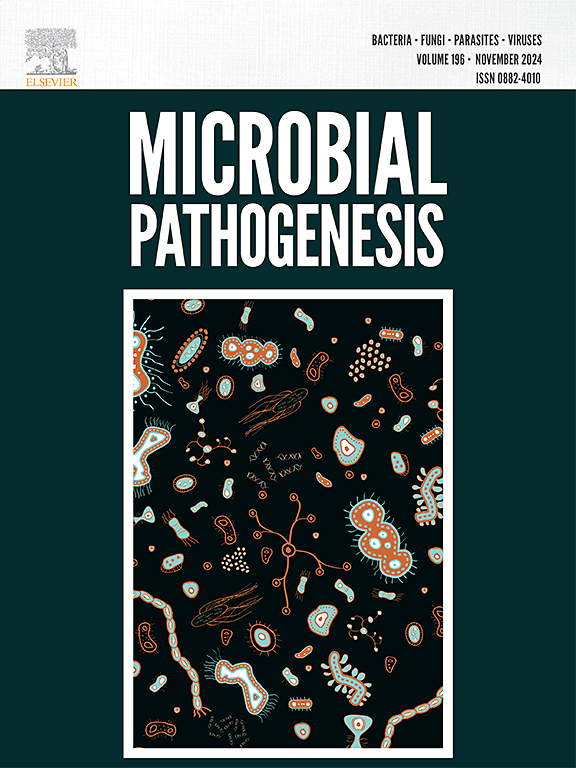A novel prophylactic strategy to enhance immunity in Plasmodium berghei infected mice: Combining mefloquine and ultra-diluted malarial antigen
IF 3.5
3区 医学
Q3 IMMUNOLOGY
引用次数: 0
Abstract
Introduction
Antimalarial drug resistance poses a significant challenge towards global efforts to combat malaria, so new strategies must be explored. Previously we showed promising antimalarial activity of ultra diluted malarial antigen (UdMAg), a novel biotherapic drug which was developed from in vitro cultures of a combination of cell-free parasites and infected red blood cells from Plasmodium falciparum 3D7 (chloroquine sensitive) and RKL-9 strains (chloroquine resistant). The stock was collected and sent to Dr. Willmar Schwabe India Pvt. Ltd., New Delhi for preparing its homeopathic dilutions to 30c by repeated succussions and potentization. The final ultradiluted Malarial antigen 30c (UdMAg) was used for the treatment along with the standard antimalarial drug mefloquine (MQ) not only to enhance the therapeutic outcomes but also ameliorate its side effects.
Methods
The prophylactic efficacy of MQ in combination with UdMAg was assessed in P. berghei infected mice (ANKA strain) using Peters (1980) method. Assessment of parasitaemia and mean survival time was studied along with immunological parameters which included analysis of cell surface expression, nitric oxide (NO) concentration, and reactive oxygen species (ROS) levels.
Results
The results demonstrated enhanced prophylactic efficacy of the MQ, accompanied by 100 % mean survival time when given along with UdMAg. Further, the combination treatment exhibited improved immunological responses, increased concentration of nitric oxide and reactive oxygen specie levels.
Discussion & conclusion
MQ, a standard antimalarial has significant side-effects, so a novel antimalarial (UdMAg) was used as a biotherapy in combination to improve its prophylactic efficacy through the generation of immune responses in the host. Our findings highlight the potential of UdMAg in enhancing the prophylactic efficacy of standard antimalarial drug.
This novel integrative approach strengthens the impact of standard antimalarial treatment while offering a potential avenue for immune-based prophylaxis. Such an approach may have significant translational relevance for developing adjunct therapies in malaria-endemic regions, particularly where immune resilience is crucial.

一种增强伯格海疟原虫感染小鼠免疫力的新预防策略:甲氟喹与超稀释疟疾抗原联合使用。
导言:抗疟药物耐药性对全球抗击疟疾的努力构成重大挑战,因此必须探索新的战略。超稀释疟疾抗原(UdMAg)是一种新型生物治疗药物,由无细胞寄生虫和恶性疟原虫3D7(氯喹敏感)和RKL-9(氯喹耐药)感染的红细胞体外培养而成。收集后送往新德里的Dr. Willmar Schwabe India Pvt. Ltd.,通过反复冲洗和强化将顺势疗法稀释至30c。将最终超稀释疟疾抗原30c (UdMAg)与标准抗疟药甲氟喹(MQ)联合治疗,不仅可以提高治疗效果,而且可以改善其副作用。方法:采用Peters(1980)的方法,在伯氏疟原虫感染小鼠(ANKA株)中评估MQ与UdMAg联合治疗的预防效果。评估寄生虫血症和平均生存时间,并分析免疫参数,包括细胞表面表达、一氧化氮水平、活性氧水平。结果:结果显示MQ的预防效果增强,与UdMAg一起给予时平均生存时间达到100%。此外,联合治疗表现出改善的免疫应答,增加了一氧化氮和活性氧的水平。讨论与结论:MQ是一种标准的抗疟药,具有显著的副作用,因此将一种新型抗疟药(UdMAg)作为生物疗法联合使用,通过在宿主中产生免疫应答来提高其预防效果。我们的研究结果强调了UdMAg在提高标准抗疟药预防效果方面的潜力。这种新的综合方法加强了标准抗疟治疗的影响,同时为基于免疫的预防提供了潜在途径。这种方法可能对在疟疾流行地区开发辅助疗法具有重要的转化意义,特别是在免疫恢复能力至关重要的地区。
本文章由计算机程序翻译,如有差异,请以英文原文为准。
求助全文
约1分钟内获得全文
求助全文
来源期刊

Microbial pathogenesis
医学-免疫学
CiteScore
7.40
自引率
2.60%
发文量
472
审稿时长
56 days
期刊介绍:
Microbial Pathogenesis publishes original contributions and reviews about the molecular and cellular mechanisms of infectious diseases. It covers microbiology, host-pathogen interaction and immunology related to infectious agents, including bacteria, fungi, viruses and protozoa. It also accepts papers in the field of clinical microbiology, with the exception of case reports.
Research Areas Include:
-Pathogenesis
-Virulence factors
-Host susceptibility or resistance
-Immune mechanisms
-Identification, cloning and sequencing of relevant genes
-Genetic studies
-Viruses, prokaryotic organisms and protozoa
-Microbiota
-Systems biology related to infectious diseases
-Targets for vaccine design (pre-clinical studies)
 求助内容:
求助内容: 应助结果提醒方式:
应助结果提醒方式:


